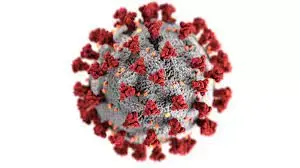Jeanne Marrazzo, new leader of the National Institute of Allergy and Infectious Diseases, everyone:
Can I make a quick digression? We recently had a long Covid [research] meeting where we had about 200 people, in person. And we can’t mandate mask-wearing, because it’s federal property. But there was a fair amount of disturbance that we couldn’t, and people weren’t wearing masks, and one person accused us of committing a microaggression by not wearing masks.
And I take that very seriously. But I thought to myself, it’s more that people just want to live a normal life. We really don’t want to go back. It was so painful. We’re still all traumatized. Let’s be honest about that. None of us are over it.
So there’s not a lot of appetite for raising an alarm, especially if it could be perceived subsequently as a false alarm.
Edit - thanks for the help in bypassing the paywall.


This kind of smug ‘we see you and we hear you’ followed by a tacit rejection of whatever it is we just said is the most enraging part of talking with libs. Just say you want us dead! Stop the act, stop pretending, and just say the quiet part out loud the way the fascists have no issue doing.
Also, while I commend any covid conscious people taking a stance no matter how small, I can’t help but find the framing of not masking as a microagression laughable. Greeting a mixed gender group with “hey guys” is a microagression. Not wearing a mask during an ongoing pandemic, a mass disabling pandemic that has made all hell break loose for immunocompromised people, isn’t a microagression: it’s violence. It’s a clear use of violence against the disabled by our ableist institutions, and the fact that powerful healthcare professionals can go along with the pretend end of the pandemic is evidence of a rot at the core of the healthcare system. Shame on them.
Your second paragraph reminds me. I just read Devon Price’s Unlearning Shame, and was somewhat shocked by his read on Covid, where he talks about how we shouldn’t shame people who don’t follow health guidelines. The point of “Don’t blame individuals for a systemic problem” is fine, but when it comes to actively and repeatedly endangering people’s health, there’s plenty of room for individual shaming. Like - don’t shame someone for having a DUI on their record, fine. But if they still drive drunk every day, that person is dangerous, no matter how acceptable drunk driving might be in their culture.
Masking divides who means what they say and who is just talking
Racism is a systemic problem but that doesn’t mean I have to tolerate someone yelling slurs in line at the bank
In my experience people get really weird and defensive when they feel guilty about the masking stuff, so while it’s for the wrong reasons, using mostly positive motivation instead is still good advice. Usually. Sometimes you get assholes ofc and they need to know it
Price did provide plenty of examples and research showing that shaming people is counterproductive, but it seemed (I haven’t investigated all of the endnotes) like that was all for matters of personal motivation. I’m willing to listen to contrary evidence, of course, but don’t we know that shame has worked in matters of public health before? There’s a lot less secondhand smoke than there was when I was a kid, and not just in places where ordinances prohibit it. That is, shame doesn’t get people to stop smoking, but it might get people to stop smoking around infants.
I think it’s exactly what I said, then. Shame is a strong social motivator but not a good personal motivator. I think that’s because social shame stands in the way of being seen as cool and good by people around you, which turns it into sort of a positive motivator by making friendship and social interaction necessitate self-moderation of the thing shame is being used to moderate.